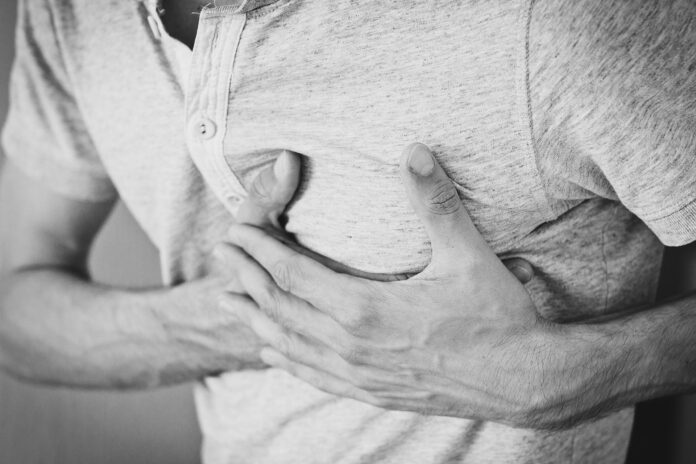According to recent research, almost half of all individuals who undergo a sudden cardiac arrest encounter a warning sign 24 hours prior to the incident. Now, a fresh study published in Lancet Digital Health on August 26 reveals that these early warning signals can also differ based on gender and these differences can often lead to the afflicted not acting fast enough.
The study authored by Kyndaron Reinier, Bernadine Dizon, Harpriya Chugh and others unveiled a significant gender disparity in the warning symptoms leading up to cardiac arrest. While all patients reported experiencing sweating and seizure-type activities, women who suffered a cardiac arrest also most commonly experienced shortness of breath before their heart attack, while the overwhelming majority of men endured chest pain before the event.
The mortality rate for out-of-hospital cardiac arrests can reach a staggering 90% and consequently, identifying and responding promptly to these early signs holds the potential to save lives.
Dr. Sumeet S. Chugh, the senior author of the study and a cardiac electrophysiologist at the Center for Cardiac Arrest Prevention in the Smidt Heart Institute at Cedars-Sinai, articulated their hopes: “Now that we have demonstrated which warning symptoms are more important, we are hoping that more individuals at risk of imminent sudden death will pay attention to their symptoms and call emergency services early, thereby increasing the likelihood of survival from this mostly lethal condition,” he said.
In their quest to refine the prediction of impending cardiac arrest, the researchers scrutinised health data from individuals who had sought emergency medical services for cardiac arrest symptoms, juxtaposed with a control group that had sought such services for similar symptoms.
According to Chugh, “If men experience sudden and unexpected chest pain, their risk of imminent sudden cardiac arrest is twice as high, whereas if women encounter sudden and unexpected shortness of breath, their chances of imminent cardiac arrest increases threefold.”
While thought of as classic heart attack symptoms, dizziness, abdominal discomfort, weakness, and nausea or vomiting were actually more frequently observed in the group of individuals who did not experience cardiac arrest.
These new findings underscore the importance of taking early warning signs seriously to potentially enhance an individual’s health outcome. Traditionally, the majority of individuals do not respond to early warning signs of cardiac arrest. British emergency services reported that just 19% of individuals had dialled emergency services in Britain as soon as they experienced early warning signs.
When it comes to cardiac arrest, the speed of resuscitation is critical, says Chen.
People who contact emergency services at the onset of these early warning symptoms have a five times greater chance of surviving cardiac arrest. Many people refrain from calling 999 because the initial signs of cardiac arrest can be easily mistaken for less serious health concerns.


